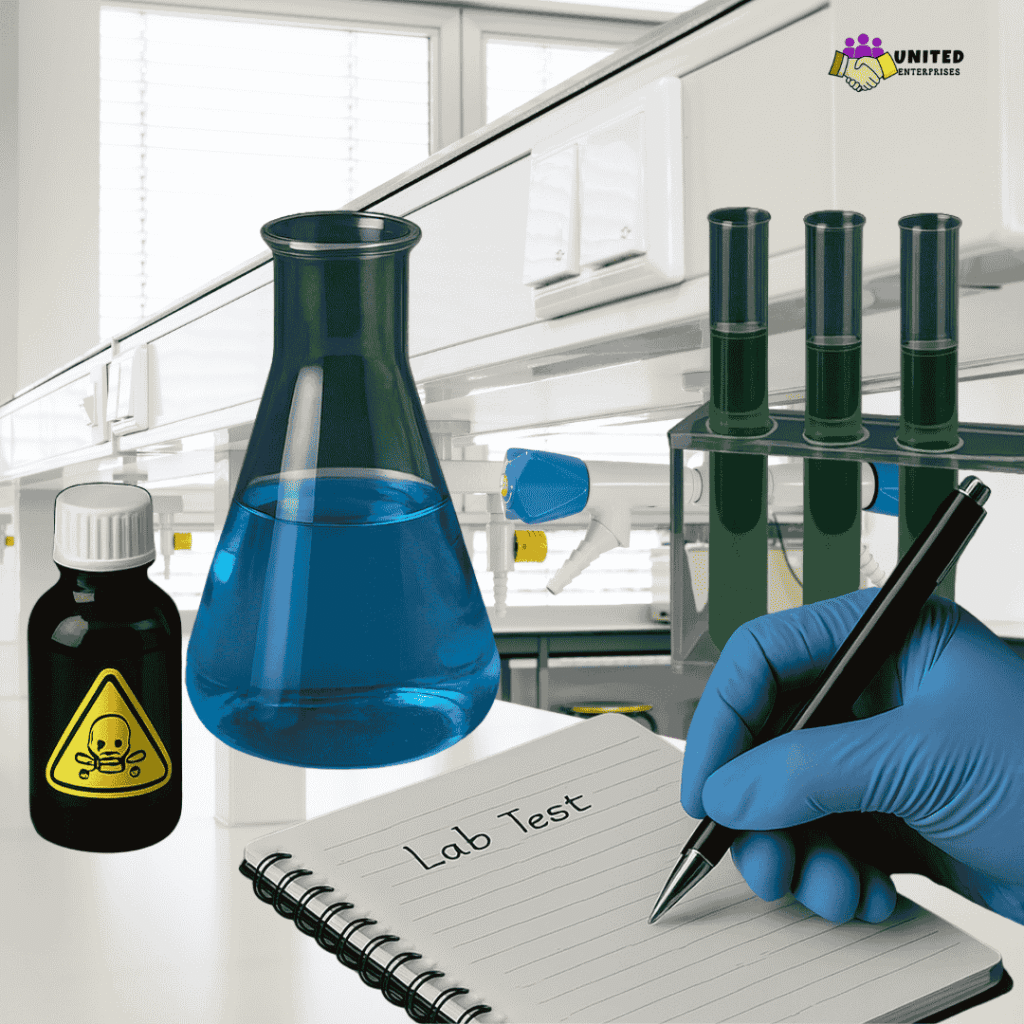Agrochemical Dossier Preparation for Regulatory Approval
The preparation of agrochemical dossiers forms the foundation upon which any agro-chemical will meet its intended regulatory requirement and make legal the sale, importation, or even export of pesticides, herbicides, and other agri-inputs. It does not matter whether you are a national manufacturer of agrochemicals or an international company that is preparing to penetrate a new market, preparing a properly structured dossier of pesticide registration is a necessity. It is a document with scientific, technical, and administrative data that is to be approved by the regulatory authorities.
Agrochemical dossier preparation services have become an industrialized business that combines technical data authoring, regulatory dossier advisors and full life-cycle services of agrochemical product registration. Effective dossier preparation makes it possible to ensure that the product is safe and effective and that it is legally allowed in the market countrywide and beyond the national borders.
Understanding Agrochemical Dossier Preparation: Scope, Importance, and Global Standards
Agrochemical dossiers are a collection of documents presented to regulatory authorities in government in order to receive acceptability of pesticides or agrochemical products. Such dossiers are a good source of vital information, including chemical composition, mode of action, toxicity level, manufacturing technique and environmental impact assessment.
The process of putting together the agrochemical dossier is large. It consists of technical summaries, study reports, risk assessments, and label claims supported by validated data. Regulators in different countries of the world have different but gradually harmonized formats and that implies that a streamlined dossier can be applied in a variety of countries through cautious structuring.
A pesticide registration dossier being professionally prepared also has more likelihood of being approved, and the dossier minimizes regulatory requests, thus saving time and money. It is a valuable aid in dealing with the complicated compliance environment and entering products into a heavily regulated environment that is highly competitive.
Who Requires Agrochemical Dossier Preparation Services?
The dossier preparation services play vital roles in:
- The manufacturers of pesticides and agrochemicals
- Foreign product importers in India that want to have their product registered
- Entry into OECD, ASEAN, and African markets by exporters
- New agrochemical formulations started by startups
- R&D companies that require technical data preparation
- Regulatory compliance agencies that require end-to-end support
Regulatory dossier consultants are important to such businesses to ensure that their activities are compliant with national and international norms and they adhere to submission schedules and minimize administrative cost.
Regulatory Framework: Authorities, Guidelines, and Approval Pathways
Registration of agrochemicals is procedurally and legally controlled by the national laws with most countries embracing OECD guidelines on toxicology, efficacy and environmental security of the products. The regulatory framework is of great importance to put dossiers in line with scientificity as well as legal requirements.
Who Regulates Agrochemical Registration in India and Globally?
The Central Insecticides Board and Registration Committee (CIB&RC) in India is the main body under the Insecticides Act, 1968. The selling, manufacturing, or importation of every pesticide and agrochemical product has to be registered first.
In different parts of the world, different bodies control the approval of agrochemicals, including
- EPA (United States Environmental Protection Agency)
- EFSA (European Food Safety Authority)
- PMRA (Pest Management Regulatory Agency, Canada) South African Council of Pesticide Control
- SAC (South African Council of Pesticide Control)
Every regulator needs customized pesticide registration dossiers according to their norms.
Key Regulatory Bodies: CIB&RC, OECD, FAO, EPA
CIB&RC (India): Regulates evaluation and acceptance of agrochemicals to be used in India.
OECD: Establishes international policies on testing of chemicals in terms of toxicology and environmental effects.
FAO: Publishes statements about pesticide use and safety labels.
EPA (USA): the most strict system of regulation; risk-benefit assessment is prominent.
These organizations affect the structure, data needs and timeline of evaluation of dossiers, hence regulatory services involving agrochemicals are delicate to adherence.
Legal Mandates for Pesticide Registration Dossier Submission
A pesticide dossier must be submitted in the case of:
- Registration of new molecules (Form 1)
- Combination products
- Re-registration or Label expansion
- Form 8: Importation registration
- Technical/Manufacturing greenlight
The statutory compliances to which they are required to show the following in agrochemicals: toxicity, efficacy, shelf life, and environmental effects being required to be recorded as per the CIB&RC or respective international standards.
Step-by-Step Process of Agrochemical Dossier Preparation Services
When in the process of signing up for dossier preparation services, one will be engaging in a systematic and science-based process that minimizes errors and enhances acceptance possibilities.
Pre-Assessment and Regulatory Feasibility:
Assert whether the product is in line with the home rule regulations. A consultant can monitor whether there are registrations already there or not, whether the ingredients are prohibited or not, and whether the data is complete or not.
Data Gap Analysis and Study Design:
In case of missing studies, a regulatory dossier consultant designs new trials, e.g., toxicological tests, eco-toxicology, or bio-efficacy.
Preparation of Technical Data:
This involves the development of summaries and complete study reports as per the GLP norms. It entails product chemistry, toxicology, efficacy, and stability details.
Compilation of Administrative Dossiers:
The specified form contains the label claims, formulation, specifications, methods of manufacturing, and safety data sheets.
Review of Dossiers and Quality Check:
A process of internal audit prevents rejection and delays of submissions since it is necessary to make sure that it is compliant and complete.
Yielding and Cooperation with Government:
The completed dossier can be sent physically or online (e.g., CIB&RC portal in India), and after it is received, there is continuous contact until its approval.
Support in the registration of agrochemicals normally entail follow ups, answering questions may arise and monitoring the timelines of the approvals on whether they clear or not.
Technical Data Preparation and Agrochemical Documentation Requirements
The components of a pesticide registration dossier consist of various modules of technical data compilation, all of which have to be scientifically ratified and documented in the regulator’s prescribed template.
Key components that are required are
- Product Chemistry: Composition of the active ingredients, process of manufacture, purity and impurities.
- Toxicology Studies Toxicity data A: acute, sub-chronic, chronic, reproductive, and developmental.
- Eco-Toxicology: It affects aquatic life, birds and bees and soil organisms.
- Residue Studies: Pre-harvest interval, MRL (maximum residue limits), and degradation profile.
- Efficacy trials: Field trials crop-wise under Indian or local climatic conditions.
- Stability Data: Shelf-life reports and conditions of storage.
Document requirements are as follows:
- Label and package insert
- MSDS (Material Safety Data Sheet)
- COA (Certificate of Analysis)
- GLP certification
- Reports and trial protocols
The registration procedure relies on quality application documentation of a high standard to help meet the regulators in the progress of evaluating the dossier.
Agrochemical Product Registration Support for Domestic and International Markets
The nature of the requirements looks different in India and the other countries as regards agrochemical dossiers. The laws in each market are unique but they have aligned most of their safety and efficacy through OECD regulations.
National vs. International Dossier Requirements
India: Studies must be done on Indian soil and also on Indian climate conditions. Efficacy experiments have to be conducted in approved ICAR institutions.
OECD and USA: GLP-compliant studies – Special focus is made on the safety and environmental concerns.
Africa, ASEAN: They accept some previously generated data in other places as long as conditions are found to be suitably met.
The registration of the agrochemical products is therefore critical and dossier. customized by each region.
Can One Agrochemical Dossier Serve Multiple Countries?
As theory goes, when a dossier is correct in terms of being formatted as OECD and data needs, it may be submitted in several jurisdictions. However the regulators may seek:
- Local bridging studies
- Label translations
- Re-evaluation of field efficacy
The use of regulatory dossier consultants can also optimize dossiers to reduce duplication and improve global submission-ready dossiers.
Can One Agrochemical Dossier Serve Multiple Countries?
As theory goes, when a dossier is correct in terms of being formatted as OECD and data needs, it may be submitted in several jurisdictions. However the regulators may seek:
- Local bridging studies
- Label translations
- Re-evaluation of field efficacy
The use of regulatory dossier consultants can also optimize dossiers to reduce duplication and improve global submission-ready dossiers.
Hiring Regulatory Dossier Consultants: What to Look for in a Service Partner
Selection of the right consultant is very essential towards the quality of the dossier as well as prompt approval.
The most important factors to take into consideration are
Regulatory Experience: Experience in dealing with CIB&RC or international agencies over the years.
Scientific Excellence: Toxicologists, chemists, agronomists, and regulatory specialists must form part of the team.
Turnaround Time: See dossier stage timelines.
International presence: Particularly relevant if you want to export.
Price Disclosure: Enquire about complete cost study fees, data formatting fees, etc.
Track Record: Previous achievement in an identical product type or market.
Reputed companies provide full-fledged dossier preparation services unified with compliance surveillance and renewal of registrations.
Common Challenges
There exist numerous obstacles that companies meet when they are attempting registration, despite having ready professional services available to do the preparation of the agrochemical dossier.
Whether there is the need to re-register upon formulation change is one of the issues being encountered most frequently. The answer is yes—any change to the source, percentage composition, the manufacturing process, or even packaging can precipitate the requirement of re-registration or of amendment of regulatory measures. Failure to consider this may result in delays, failure to comply, or having the product rejected in the market completely.
The other common obstacle is the determination of what tests are required for submission of the dossier. Most of the applicants would provide incomplete information and would forget important research like toxicology (acute, sub-chronic, and chronic), ecotoxicology (effect on aquatics, bees, and birds), residue analysis, and efficacy tests. Each of these components is usually required to be reported under GLP as prescribed by the regulators. The application can be blocked indefinitely by missing or failing to comply with the study.
It is a great issue of time, too. The question of most companies is how much time does it take to develop an agrochemical dossier? The response differs based on the availability of such data, the necessity of new research and regulatory review periods. The average dossier preparation takes place in 6 months to one year. This may be further extended by delays in field trial approvals, lab report finalizations, or internal coordination. Firms with no experience in the regulation or sufficient inner capabilities are more likely to have a longer waiting time that would affect the schedule of the products launched.
To be brief, although it is possible to register agrochemicals, it is considerably paperwork-intensive at the same time. Collaboration with the regulatory dossier specialists can alleviate these drawbacks to an extent, making sure that compliance, efficiency and time to market can be achieved.
Frequently Asked Questions
scientific compilation of data on pesticide safety, efficacy, and composition submitted to regulatory authorities for approval.
It ensures legal product registration and demonstrates safety, efficacy, and regulatory compliance.
Study reports (toxicity, efficacy, residue), MSDS, labels, manufacturing data, and GLP certificates.
Typically 6–12 months depending on data readiness and regulatory complexity. Toggle Content
The Central Insecticides Board and Registration Committee (CIB&RC).
Costs vary from ₹3–10 lakhs+ depending on the data gaps, studies required, and consultancy fees.
Check regulatory experience, scientific team, turnaround times, and client testimonials.
Yes, with modifications for local regulatory needs and bridging studies.
Toxicology, eco-toxicology, residue studies, product chemistry, and field trials.
Yes, any major formulation or composition change requires an update or re-registration.

Contact Us



